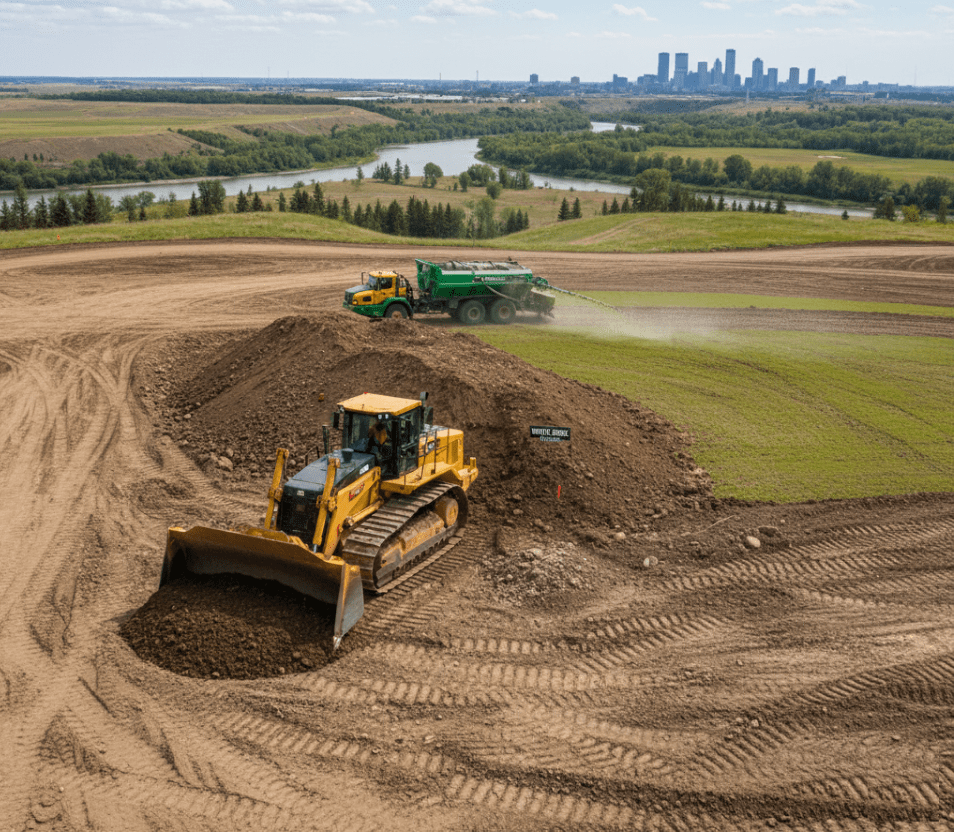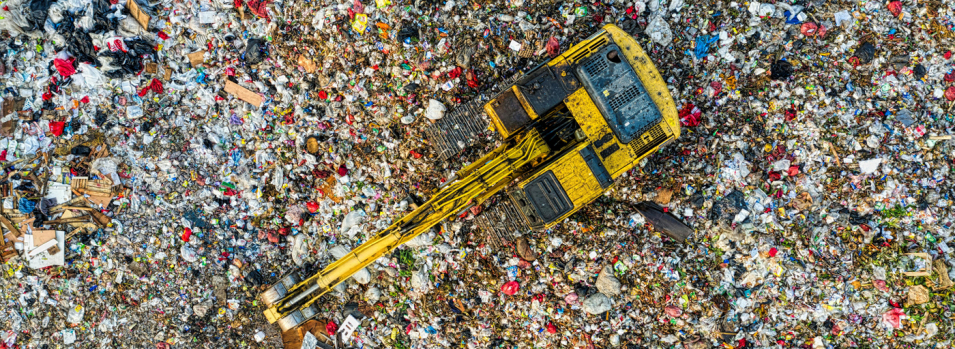In the heart of Canada’s resource-rich provinces, a silent revolution is happening. The science and strategy of land reclamation is now reviving some sites that were otherwise deemed unusable, having been scraped by industry, mining, or natural deterioration. From Alberta more broadly to Edmonton, this shift is no longer just rehabilitating the environment but also unlocking new economic opportunity. Welcome to the future of sustainable development, where digging for new land is transforming yesterday’s wastelands into tomorrow’s economic powerhouses.
What is land reclamation?
Land reclamation is the process of recovering land that is lost due to disturbance or degradation. This can mean everything from a reseeding of native plants and revitalizing soil health to reshaping topography and reintroducing ecosystems for wildlife. In places such as Alberta, where industries like oil and gas, mining and agriculture have all knocked down the pins, reclamation pulls double duty as both environmental imperative and economic opportunity.
The Alberta government currently defines land reclamation as “the return of land to equivalent land capability.” That is, the land must be able to support the same kind of uses it did prior to disturbance — even if those uses are different in nature.
Land reclamation in Alberta: A provincial issue
With respect to reclamation, Alberta is at the head of the pack in Canada. The result of an environment in which large areas have been affected by industrial development; the province has strict criteria and monitoring programs to ensure reclamation is successful.
From the boreal forests of northern Alberta to prairie landscapes in the south, reclamation projects are rehabilitating land and promoting biodiversity while improving water quality and creating potential new opportunities for agriculture, recreation, and even residential development. The Alberta Energy Regulator (AER) is a principal agency leading these efforts, policing the province’s requirement that companies restore land after they are finished with resource extraction.
One such example is the rehabilitation of former oil sands fields. These landscapes, which were once dominated by tailings ponds and heavy machinery, are being converted into wetlands, forests and grasslands that provide habitat for native species and store carbon.
Reclaiming land in Edmonton: The intersection of urbanism and environmentalism.
Where rural Alberta confronts vast satellite reclamation from the resource industries, Edmonton offers a different kind of problem — and opportunity. As one of Canada’s rapidly growing cities, Edmonton must grow amidst green commitments. Typically, around here means turning brownfields — urban lots made ugly or hazardous by earlier industrial use — into vivid community spaces.
Projects such as the redevelopment of the former CN Rail yards and reclamation of old landfill sites for public parks demonstrate how Edmonton is embracing reclamation as part of its urban renewal toolbox. These efforts will not only make the environment healthier but also increase property values, bring investment into the community, and improve the quality of life.
Reclaiming land in Edmonton is about more than just mechanistic technical processes — it’s a vision of a greener, more resilient city.
Economic benefits: From liability to assets

There is a strong economic argument in favor of land reclamation. Land gained can be reused for agriculture, industry, residence, tourism, and conservation. What has been a liability is now an asset that generates revenue, creates jobs, and stimulates local economies.
In some parts of Alberta, reclaimed lands have been put back to work as new farms or infrastructure, while in other areas the land has been used for renewable energy projects such as solar farms. In Edmonton, former brownfields have been redeveloped into areas for innovation, retail, and recreation.
And companies that put money into reclamation often obtain a reputational return. Showing commitment to the environment can bring in investors, meet regulations and instill confidence among communities.
Environmental impact: Restoring the land and saving the future
Another aspect, apart from economics, is the importance of land reclamation in environmental management. It fights the loss of soil, contributes to water replenishment, and keeps biodiversity alive. In Alberta, which boasts a wide variety of ecosystems including wetlands, grasslands and forests, reclamation means preserving these natural treasures for future generations.
In Edmonton, urban reclamation aids in pollution mitigation, stormwater management and the development of green spaces that enhance both mental and physical health. These projects also help build climate resilience, making cities more resilient to extreme weather and environmental pressures.
Expertise matters: Why you need Whiterock Ventures
Land reclamation is a fine-art mix of environmental science, engineering, compliance with regulations, and the management of projects. Enter Whiterock Ventures.
With vast expertise in land reclamation throughout Alberta and Edmonton, Whiterock Ventures provides a full range of solutions – from preliminary site evaluation & planning to execution and follow-up! Whether you are a developer seeking to recycle obsolete industrial sites or a municipality with nascent brownfields and super links you would like us to rehabilitate, we have the equipment, expertise and experience needed.
We have an intimate knowledge of the Alberta regulatory environment and share your dedication to sustainability. We reclaim more than just land — we help you reclaim opportunity.
Want your land to become an economic powerhouse? Click on the button below to book a consult with Whiterock Ventures.
Looking forward: A sustainable future
With Canada increasingly focused on sustainability and climate action, reclamation of the land will be a critical component. In Alberta, it helps find a balance between resource development and environmental protection. In Edmonton, it will help to build smart growth and urban resilience.
The pathway is clear: land reclamation is not only about making right the past – it’s about shaping the future. And with the right partners like Whiterock Ventures, that future is now here.



